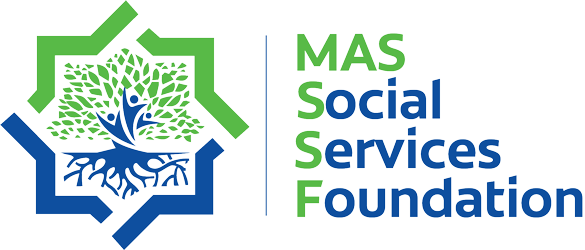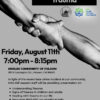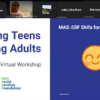It is understandable that sometimes people feel overwhelmed with news such as the Coronavirus (COVID 19). It is not abnormal to experience feelings of stress, exhaustion, anxiety, and depression an information overload can create or trigger. Information overload, especially with something like a contagious disease such as the COVID 19, can create increased stress. Keep in mind, our bodies and minds are not designed to be in a constant state of Fight or Flight. When we receive constant information from multiple outlets, including emails, social media, television, radio, and newsprint our brains begin to internalize the dangers associated with the language used in those communications. To help restore some balance in your life, both at work and at home, let’s briefly explore how constant stress can affect us and explore ways to manage or lessen the effects of stress and information overload.
What does stress do to us?
The stress response (also known as the Fight or Flight Response) is meant to be a short burst of focused energy to help you safely escape a dangerous or extreme situation. When our stress response is elevated or experienced on a continued basis, we will eventually begin to notice the negative side-effects such as, a decrease in our ability to regulate our emotions or make decisions, difficulty focusing or concentrating on difficult tasks, and increased feelings of anxiety, irritability, and depressed moods. Stress can also have impacts on our ability to sleep, unwind after a difficult day, or relax. So, what can we do to counteract the stress symptoms that could be associated with the COVID 19 news coverage?
Four Ways to Manage Stress and Information Overload
- Check your Breathing:
Take a moment and breathe – really breathe, in and out, filling your lungs and body with air. When we are stressed, we tend to take short shallow breaths, which can increase feelings of anxiety. However, deep breathing not only gives as a moment to reconnect with our bodies and slow an increased heart rate, but it also can be helpful in regulating our emotions.
Try it out:
When you are feeling overwhelmed, angry, stressed, anxious, or exhausted take a deep breath, inhaling for a count of 4 seconds, hold, and then exhale slowly for twice as long (6-8 seconds). Repeat as many times as needed. This exercise helps reduce both the heart rate and our blood pressure.
- Make Time for Media Breaks:
It is important to take breaks from news media. This may mean that you schedule a time during your day (maybe just before or after work) to set down or turn off your phone, social media sites, and unplug from the news outlets for a specific amount of time (10-60 minutes). This will give your brain a chance to rest and recover. This can also allow you to clear your mind and think more clearly.
- Set Boundaries:
Be specific in setting your limits and plan when and how you will obtain your information during the day. To decrease the burden of information overload, be specific and mindful about where, when, and how often you are exposing yourself to the updated information.
For example:
You may decide you will only watch the 10 O’clock news report, or only listen to or read the news update in your favored media platform at a specific time of the day. If you need or want to be updated more than once a day try to be intentional about the times and sources where you receive your information.
- Consider your Thoughts:
Staying informed is important but too much information and mixed messages can deepen our worries and fears. When we don’t set boundaries and control the amount and sources of information we are receiving about something like COVID 19, we have a tendency to get lost in a cycle of a “what if,” thinking pattern. This can leave us feeling lost, frustrated, desperate, and scared. Instead, if we can shift our focus on controlling how and when we receive the information and try to practice a “what are my next steps” thinking pattern, then we will be able to plan and be better prepared for how we will handle the situation as it evolves.
Talking with your Family and Friends about COVID 19
School closures, quarantines, dropping stock markets, and constant coverage of the COVID 19 is being highlighted on a daily basis. Unfortunately, we are not experiencing this information overload alone and we may find ourselves needing or wanting to talk with our family and friends about things we are hearing and seeing in the news. Below are some suggestions to assist you in talking with your family, friends, and co-workers.
- Maintain Your Routine:
Maintaining your regular daily routines will help create a sense of normalcy for everyone in your household, especially younger children. Although some aspects of our social routines may be adjusted due to concerns regarding COVID 10, we can continue to spend time together and participate in other fun family activities, such as maintaining normal meal times, playing with our pets, working out, or playing games and watching movies together.
- Be Open to having a Conversation:
If you are feeling the stress from being flooded with information about COVID 19, chances are, so are members of your family. Be open to having regular, honest conversations about the COVID 19. It is important to try not to make assumptions about what your children or family members are thinking or feeling. Consider letting your children or family members lead the conversation, to ask questions, and to share their worries and concerns openly.
- Reassurance and Connection:
As humans, it is natural for us to want to connect and feel understood by others. Taking time to listen to your family and friends about their worries and concerns associated with the COVID 19, and being willing to answer questions and share your thoughts and feelings will help establish and maintain a sense of reassurance and connection. We don’t have to know what is going to happen in the future, but we can support each other through difficult situations.
So when you find yourself feeling tense, overloaded, and drained from all of the news coverage dedicated to the COVID 19, remember there are steps you can take to reduce stress, to recharge, and to connect with your family.






